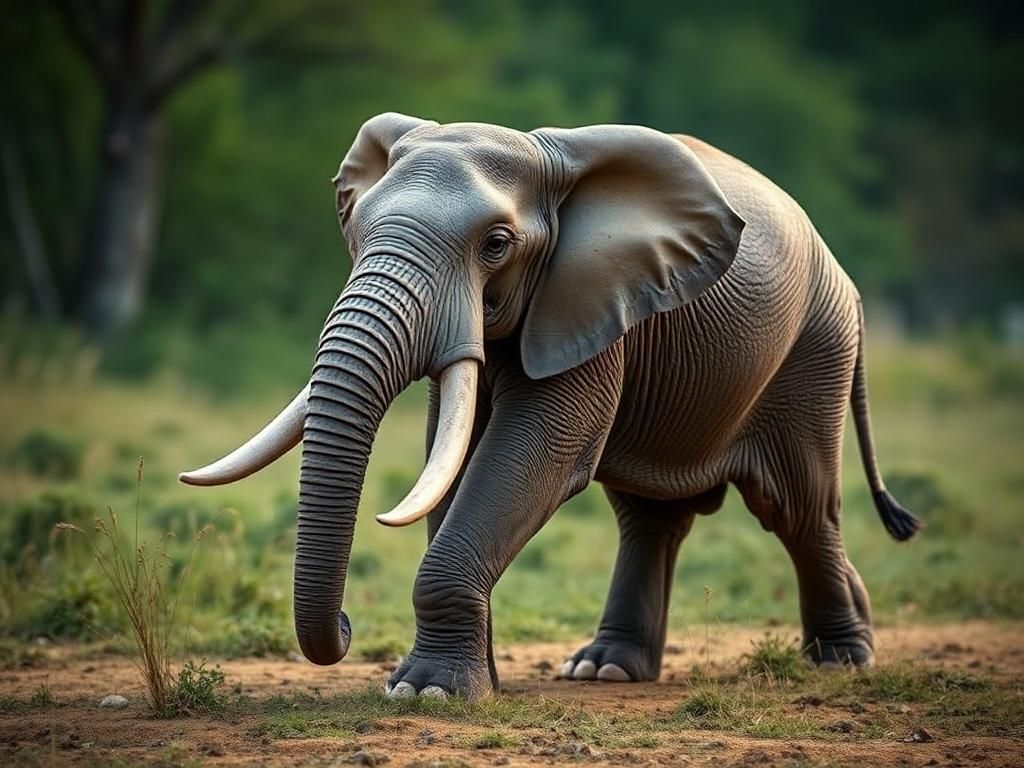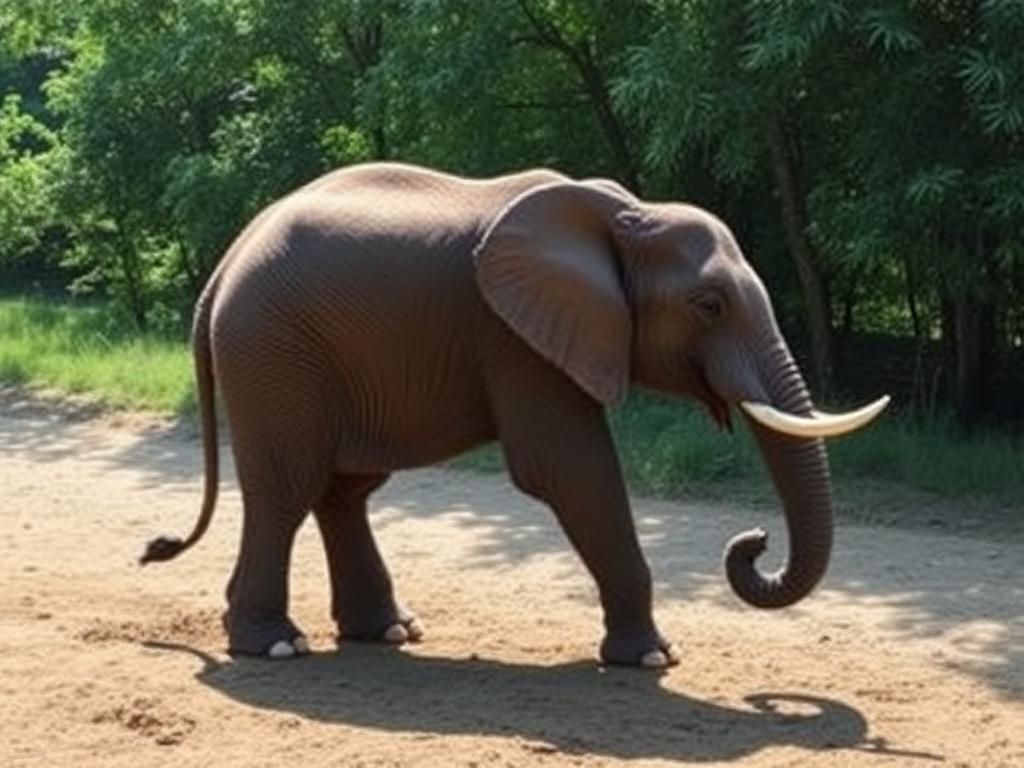Elephants have long held a place of reverence and admiration in various cultures around the globe. Their sheer size, intelligence, and social structures make them one of the most fascinating animals on earth, but what does an elephant symbolize? Understanding the symbolism of elephants can provide insight into human culture, spirituality, and our interconnectedness with nature. By exploring these meanings, we can appreciate the deeper significance that these majestic creatures hold in mythology, religion, and various cultural practices.
The symbolism of elephants is often tied to key human values such as wisdom, loyalty, strength, and peace. Acknowledging these associations can help us recognize how different societies perceive and honor these magnificent animals.
Cultural Significance of Elephants
Elephants in Asian Culture
In Asian traditions, elephants are predominantly revered for their spiritual and cultural significance.
Reverence in Hinduism
The elephant is a sacred animal in Hinduism, symbolized primarily by the deity Ganesha, known as the remover of obstacles and the god of wisdom and learning. Ganesha’s elephant head represents intellect and the ability to overcome life’s challenges, making it clear why elephants are associated with wisdom and auspiciousness in Hindu culture.
Role in Buddhist Traditions
In Buddhism, elephants symbolize mental strength and enlightenment. They are viewed as noble creatures that embody calmness and tranquility, representing the peace and harmony one strives for in life. Elephants are often depicted in stories emphasizing the importance of compassion and mindfulness.
Celebrations and Festivals Featuring Elephants
Various celebrations, like Thai Elephant Day, highlight the cultural importance of these animals. During this festival, elephants are adorned in colorful decorations, and activities are organized to honor them. This underscores the deep-seated appreciation of elephants in Asian culture.
Elephants in African Culture
In African societies, the symbolism of elephants encompasses themes of strength and leadership.
Symbol of Strength and Power
Elephants are seen as symbols of strength and power in many African tribal cultures. Their size and physical capabilities symbolize leadership qualities that are paramount in tribal societies. They are often associated with protection and the ability to endure life’s hardships.
Spiritual Significance in African Religions
In African religions, elephants hold spiritual significance as they embody connections to ancestors and the spirit world. Rituals, dances, and ceremonies often feature elephants as a way to pay homage to these ancestral connections, reinforcing their cultural status.
Symbolic Meanings of Elephants
The symbolism associated with elephants can be dissected into various meaningful aspects.

Wisdom and Knowledge
Elephants are recognized for their remarkable intelligence and memory. The phrase “an elephant never forgets” depicts their life spans, during which they accumulate vast knowledge, often becoming leaders within their herds. This quality ties back to human leadership; elephants inspire a deep understanding of experience, wisdom, and decision-making in human contexts.
Family and Loyalty
Elephants are known for their strong familial bonds. In herds, maternal care and social connections are of utmost importance. These animals display loyalty not just in their family units but also among group members. This behavior symbolizes the essence of loyalty, protection, and community, echoing through human social structures.
Strength and Resilience
With their massive stature, elephants embody both physical strength and inner resilience. They face environmental threats, such as habitat loss, yet continue to adapt and survive. This ability to overcome challenges symbolizes the strength that individuals can harness in their own lives, motivating many to persevere in the face of adversity.
Peace and Tranquility
The calm demeanor of elephants is a central aspect of their symbolism. Within various cultures, they are perceived as symbols of peace and tranquility, contributing to connections centered on harmony and stability. In urban settings, representations of elephants often serve as a reminder of the peaceful coexistence humans can aspire to achieve.
Elephants in Popular Culture
The symbolism of elephants extends into popular culture, influencing literature, film, and art.
Elephants in Literature and Film
Many literary works feature elephants as prominent characters. For example, in *The Elephant Man* by Christine Sparks, the portrayal of elephants symbolizes social ostracism. Additionally, films like *Dumbo* illustrate the emotional life of elephants while underscoring their societal significance. These representations significantly impact audiences’ perceptions, fostering empathy and understanding for elephants.
Elephants in Art and Decoration

Art and decorative items have long represented elephants in various cultures. From sculptures to paintings and jewelry, elephants are often featured as motifs that signify strength, wisdom, and good fortune. Culturally crafted items, such as Indian elephant wood carvings, highlight aesthetic beauty intertwined with symbolism, making them cherished pieces in home decor.
| Culture | Symbolism | Key Traits | Celebrations |
|---|---|---|---|
| Asian | Wisdom, Learning | Peaceful, Enlightened | Thai Elephant Day |
| African | Strength, Power | Loyal, Resilient | Rituals and Ceremonies |
Conclusion
Through understanding what an elephant symbolizes, it becomes clear that these magnificent creatures encapsulate a rich tapestry of meanings that span across cultures. From their roles in religion and mythology to their representation in popular culture, elephants embody values of wisdom, loyalty, strength, and peace.
Their significance in global culture can serve as a catalyst for greater appreciation and protection of elephants. By promoting awareness and fostering a connection with these animals, we can highlight the essential role they play in our world.
Frequently Asked Questions
What is the spiritual meaning of an elephant?
The elephant symbolizes wisdom, strength, and loyalty in many cultures, often representing spiritual connectedness.
Why are elephants associated with wisdom?
Elephants are known for their intelligence, complex social structures, and exceptional memory, which contribute to their association with wisdom.
What does an elephant represent in Hinduism?
In Hinduism, elephants represent wisdom and overcoming obstacles, primarily symbolized by the deity Ganesha.
How are elephants portrayed in African culture?
In African culture, elephants symbolize strength and power, often associated with leadership and spirituality.
Are there any traditions that celebrate elephants?
Yes, traditions like Thai Elephant Day celebrate the importance of elephants, featuring various activities and honors attributed to these animals.
What do elephants symbolize in popular culture?
In popular culture, elephants often symbolize compassion, family, and resilience, influencing audience perceptions of these creatures.
How do elephants embody peace?
Their calm demeanor and gentle nature represent peace and tranquility, making them symbols of harmony in various cultures.
What can we learn from elephants?
We can learn about family bonds, loyalty, resilience, and the significance of protecting our environment through the symbolism of elephants.
References
– “The Symbolism of Elephants in Different Cultures” [Link to reputable site].
– “The Role of Elephants in Environmental Context: A Conservation Perspective” [Link to academic site].
By exploring these various facets, it’s evident that the inquiry into “what does a elephant symbolize” unveils complex and meaningful interpretations grounded in cultural significance, spiritual beliefs, and ethical considerations regarding these incredible creatures.
